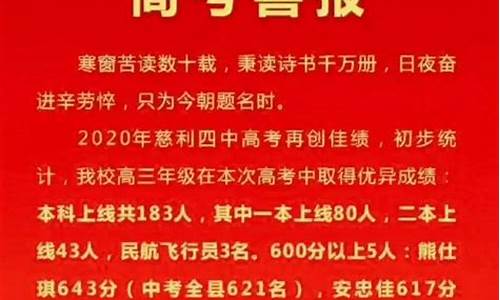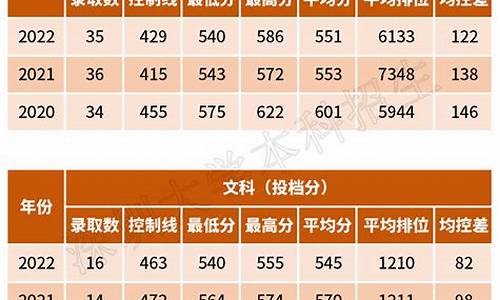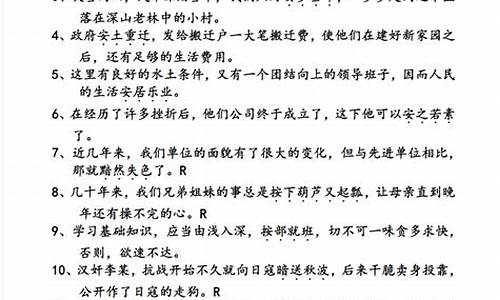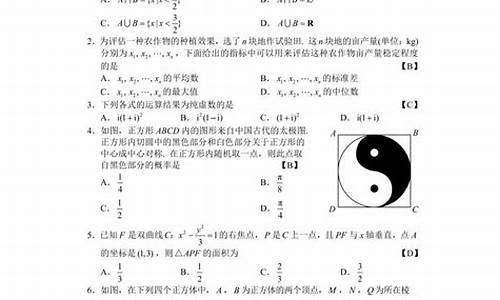2017年山东高考英语作文,2017高考山东高考英语
1.2017年高考英语备考:地点副词的用法
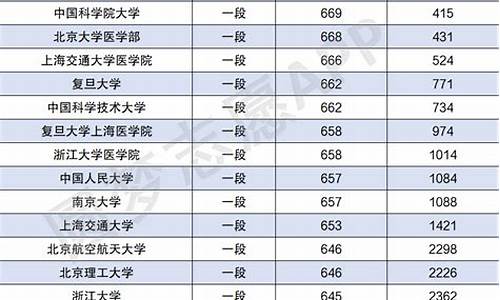
2017年高考使用全国Ⅰ卷的省份:
福建、河南、河北、山西、江西、湖北、湖南、广东、安徽。
山东省部分科目使用全国Ⅰ卷:
全国Ⅰ卷;外语、文综、理综, 自主命题:语文、文数、理数。
扩展资料:
(新课标Ⅱ卷)
2015年及其之前:贵州 甘肃 广西 青海 西藏 黑龙江 吉林 宁夏 内蒙古 新疆 云南 辽宁(综合)海南(语文 数学 英语)。
2015年增加省份:辽宁 (语文 数学 英语)。
2016年增加省份:陕西、重庆、;取消省份:广西 云南 贵州。
2018年使用省区:甘肃、青海、黑龙江、吉林、辽宁、宁夏、新疆、内蒙古、陕西、重庆、海南(语文、数学、英语)西藏2018使用的是全国三卷。
参考资料:高考试题全国卷_百度百科
2017年高考英语备考:地点副词的用法
语法填空题作为一种新型题目,重点考察的是学生的词汇掌握能力、词语辨析、单句理解能力,这就对学生英语综合能力的应用提出了更高的要求。要下面是我为大家推荐的2017高考英语语法填空分类试题,仅供大家参考!
高考英语语法填空分类试题
一、考查词形转换
1. He must be (mental) disabled.
2. His teacher took a deep drink, smiled (warm), and thanked his student very much for the sweet water.
3. We drank together and talked (merry) till far into the night.
4. One Sunday morning in August I went to a local musical festival. I left it early because I had an appointment (late) that day.
5. This proverb is saying we have to let things go in their (nature) course.
6. But Jane knew from past experience that her (choose) of ties hardly ever pleased her father.
7. Mary felt (please), because there were many empty seats in the room.
8. ?That would be a very (reason) thing to do in a big city, but it could destroy a small village like ours,? Nick said.
9. ?But such a small thing couldn?t (possible) destroy a village.?
参考答案:1. mentally 2.warmly 3.merrily 4.later 5.natural
6.choice7. pleased 8.reasonable 9.possibly
二、考查非谓语动词
1. He spit it out, (say) it was awful.
2. I got on the bus and found a seat near the back, and then I noticed a man (sit) at the front.
3. He suddenly appeared in class one day, (wear) sun glasses.
4. ?In the beginning, there was only a very small amount of unfairness in the world, but everyone added a little, always (think) that it was only small and not very important, and look where we have ended up today.?
5. While she was getting me (settle) into a tiny but clean room, the head of the village was tying up his horse to my car to pull it to a small town some 20 kilometers away where there was a garage.
6. For example, the proverb, ?plucking up a crop (help) it grow?, is based on the following story.
7. She wished that he was as easy (please) as her mother, who was always delighted with perfume.
参考答案 1-7: saying sitting wearing thinking settled to help to please
三、考查谓语动词时态及语态
1. The sun was setting when my car (break) down near a remote and poor village.
2. Besides, shopping at this time of the year was not a pleasant experience: people stepped on your feet or (push) you with their elbows (肘部), hurrying ahead to get to a bargain.
3. He walked in as if he (buy) the school.
4. Her mother was excited. ?Your father has at last decided to stop smoking,? Jane____ (inform).
5. Suddenly, he (find) that he had run out of salt.
参考答案 1-5 :broken pushed had bought was informed found
四、考查形容词或副词的比较级
1. The teacher replied, ?You tasted the water. I tasted the gift. The water was simply the container for an act of kindness and love. Nothing could be (sweet).?
2. He was very tired after doing this for a whole day, but he felt very happy since the crop did ?grow? (high).
3. It might have made it a little (hard) for everybody because it meant they had to turn around, but that didn?t stop the kids in the class.
参考答案 1-3 :sweeter higher harder
高考英语语法填空答题技巧
一、已给单词提示题型的技巧
此类题可以考查学生对单词形式变化的掌握程度。单词形式变化主要有两种,一是词的形、数、式的变化,一是词的派生变化。在判断出词的变化之后还应该进一步审题,看是否需要使用复合的变化形式,这一点是很重要的。
技巧一:名词形式变化。
名词的形式变化主要有单数、复数、所有格的变化。
例:There are many students living at school,the(child) houses are all far from schoo1.
由students一词可以判断出横线处应填复数,且作为houses的定语,所以应用其所有格形式,故答案为child的复合变化形式? 复数的所有格children?s。
技巧二:动词形式变化。
动词的形式变化比较多,有谓语的变化(时态、语态、语气),有非谓语的变化(不定式、动名词、现在分词、过去分词)。
例:A talk(give) tomorrow is written by Professor Zhang.
句中的is written是整句的谓语,所以横线所在的动词应当用作非谓语。从tomorrow可以看出,报告是?将来?作的,故用不定式;且报告是give动作的承受者,故可以判断出横线所在处用give的不定式被动式?to be given。
技巧三:代词形式变化。
代词形式变化通常是与人称变化有关的三大类五小类,即人称代词(主格和宾格)、物主代词(形容词性和名词性)、反身代词。另外还有几个不定代词的形式变化,如no one/none、other/another等。
例:The king decided to see the painter by(he).
由介词by可以看出,横线处应填反身代词himself。
技巧四:形容词、副词比较级变化。
英语中大部分形容词和表方式的副词都有原级、比较级和最高级的变化。构成比较级和最高级的方式,或通过加后缀一er和.est,或在词前Imore/less和most/least,且形容词的最高级还要冠以the。
例:I am (tall)than Liu Wen.He is the tallest students in my class.
此题后句交代了LiuWen是班上最高的学生,那?我?肯定比他矮,所以不能用taller,只能用表示程度不如的?less tall?。
技巧五:数词形式变化。
数词的形式变化包括基数词、序数词,或加后缀一teen、ty的变化,甚至还有作分母用的序数词的单复数形式,以及one/two的特殊变化形式 once/twice
例:To my three sons I leave my seventeen horses.My eldest son shall take a half,my second son shall take a (three).
从上下文连续起来理解,这是一个分马的计划,大儿子分得a half,也就是?一半?或?二分之一?,那么二儿子应该得?三分之一?,所以要填入作分母的序数词?third?才能命中目标。
技巧六:词的派生。
词的派生现象在英语单词中是很常见的,派生现象主要发生在名词、动词、形容词、副词四种词中。这种题型还有可能检测学生对词根、前后缀、派生词的掌握。
例:Lious lost his wallet yesterday,SO he was very____(happiness).
在这道题中,学生很容易判断出该用形容词;钱包丢了,人应该是不开心的,所以要再加个前缀un,就成了unhappy。
地点副词
具体如下:
地点副词指表示地点的副词和表示位置关系的副词统称为地点副词.常见的这类副词有:
表示地点的:
here,there,home,upstairs,downstairs,anywhere,everywhere,nowhere,somewhere,abroad,elsewhere等.
表示位置关系的:
above,below,down,up,out,in,across,back,along,over,round,around,away,near,off,on,inside,outside,past等.
在表示位置关系的副词中,有些副词也可用作介词(如:
above,over,beyond,around,below,down,up,in,along,near,off,on,past等),在没有宾语时就是副词,有宾语时就是介词,如:
Come in,please.(副词)
They live in the next room.(介词)
Let's take along.(副词)
Let's walk along this street.(介词)
She looked around.(副词)
They sat around the table.(介词)
Let's go on with the work...(副词)
What subject will you speak on?(介词)
四、地点副词在句中的位置
地点副词常放在动词后面,如果是及物动词,一般就放在宾语后面.如:I remember having seen him somewhere.
Wuxia films are popular in China.
地点副词和时间副词并列使用时,一般要把地点副词放在时间副词之前.如:
We had a meeting here yesterday.
He did the work carefully here yesterday.
如果地点状语很长时,也可以放在时间状语之后.如:
He was born in 1940 in a small village at the foot of Mount Tai.
五、地点副词常可以用作表语
副词可以用作表语,主要是地点副词,时间副词和其他副词有时也可以用作表语.如:
They are inside.他们在里面.
How long will she be away?她要离开多久?
When will you be back?你什么时候回来?
You haven't been around much.你很少到这边来.
He'll be round in an hour.他一个小时内就到.
Now autumn is in.秋天来了.
I must be off now.我得走了.
We are behind in our plan.我们落在计划后面了.
声明:本站所有文章资源内容,如无特殊说明或标注,均为采集网络资源。如若本站内容侵犯了原著者的合法权益,可联系本站删除。




